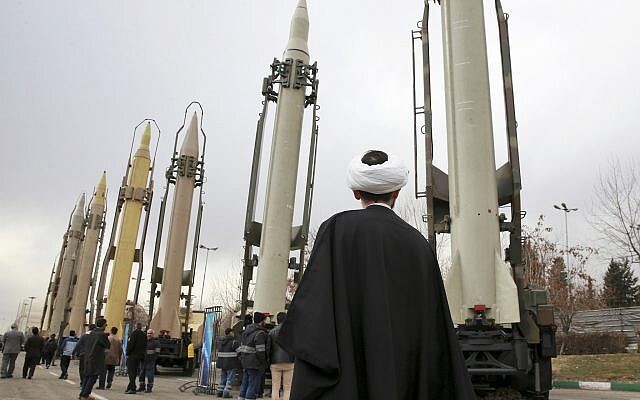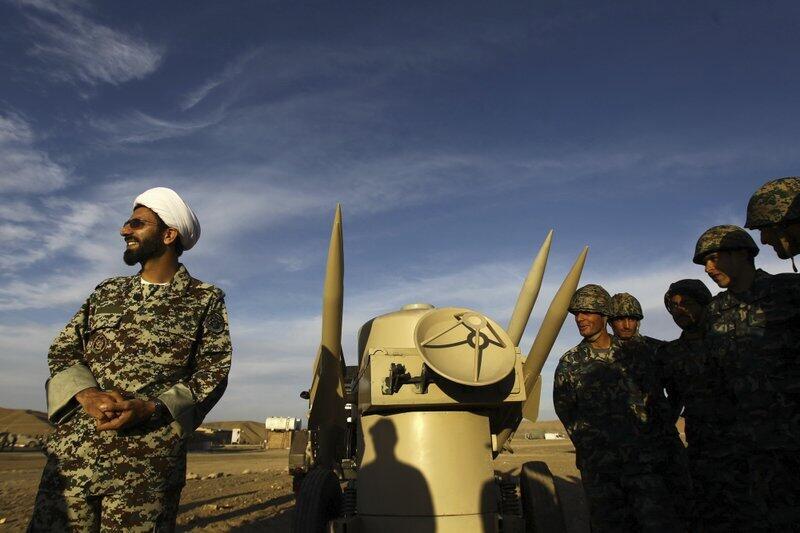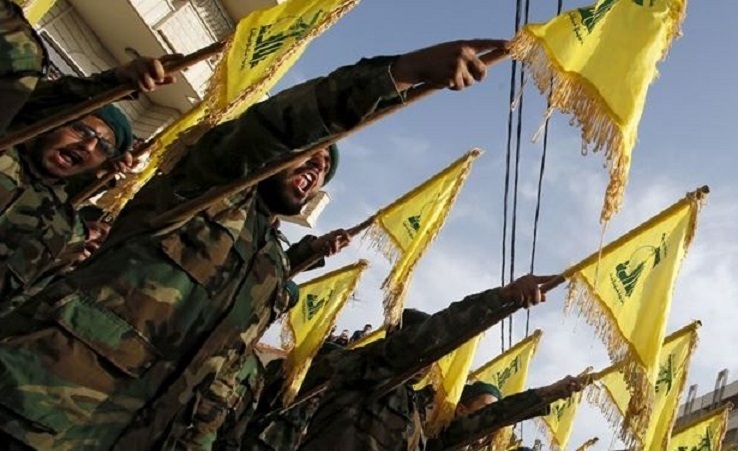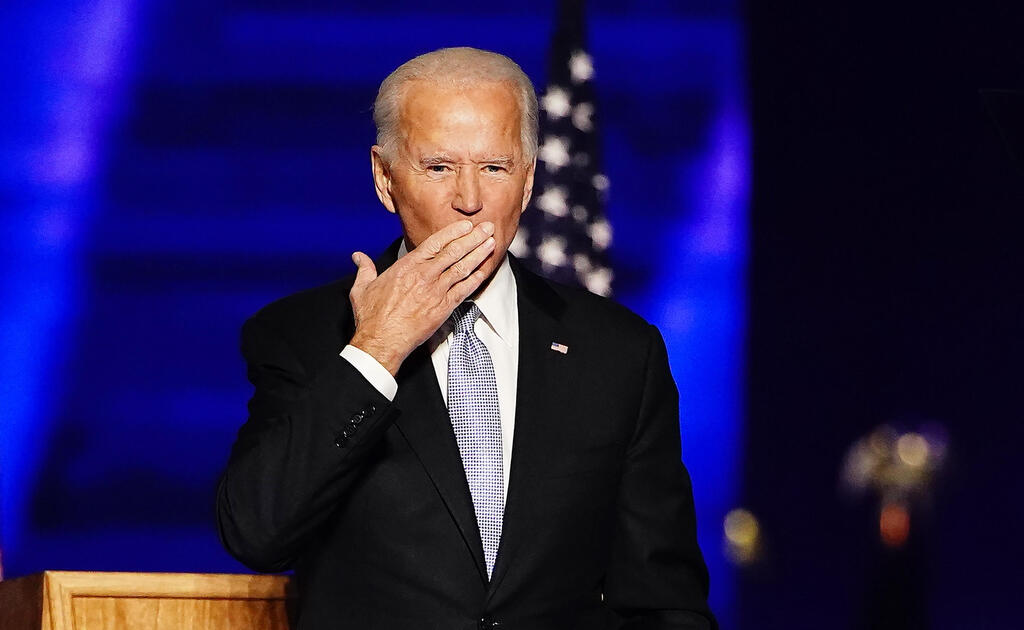Getting your Trinity Audio player ready...
The revival of the United States' role in the Iran nuclear agreement is not a matter of if but when.
Unofficial meetings held lately between U.S. President-elect Joe Biden's foreign affairs and defense team and Israeli officials made it clear his administration is working on a reworked outline for negotiations with Tehran, a top priority for his upcoming presidency.
4 View gallery


Surface to surface missiles displayed by the Revolutionary Guard on the 40th anniversary of the Islamic Revolution, in 2019
(Photo: AP)
The American team to be tasked with restarting these talks includes Antony Blinken, former deputy secretary of state and deputy national security advisor under President Barack Obama, Jack Sullivan, Biden's national security advisor during his tenure as vice president and former undersecretary of defense for policy Michèle Flournoy.
The strategy this team is working towards involves a two-phase negotiation with the Iranians through two separate channels. The first is due to take place after Biden takes office in January and before the election of a new Iranian president in June.
The Americans estimate that until the presidential elections in Iran, no substantial agreement can be achieved.
The main objective during this phase is to reach an understanding with Tehran to freeze its ballistic missile development, end interventionist actions in the Middle East and halt to its nuclear military activity.
In return and once a new agreement signed, Washington will lift the latest sanctions put in place in 2018 by outgoing President Donald Trump.
With the election of a new Iranian president, the U.S. will begin talks focusing on nuclear and regional issues with the intention of correcting any weaknesses in the 2015 agreement.
4 View gallery


An Iranian clergyman stands next to missiles and army troops, during a maneuver in an undisclosed location in Iran
(Photo: AP)
During this second phase, which could last for a long time, the sanctions will remain in place.
The emerging U.S. outline could be a point of contention between Defense Minister Benny Gantz and Prime Minister Benjamin Netanyahu.
As far as Netanyahu is concerned, there is no better alternative to heavy sanctions until such a time as Iran decides to throw out its entire nuclear program and its existing atomic capabilities.
Gantz, on the other hand, does not rule out an attempt by the Americans to reconfigure the existing agreement, but stresses that any updated outline must not only include an end to Iranian nuclear development, but also an effective ban on its distribution of ballistic missiles to the region – including the rocket workshops in Lebanon - as well as an end to Iranian intervention against Israel in Lebanon and Syria and its activities in war-torn Yemen.
4 View gallery


Fighters belonging to the Iran-backed Lebanese terror group Hezbollah
(Photo: Reuters)
Defense sources estimate that an Iran deal under Biden will include all the provisions Israel requests and will become a bulwark against possible regional conflict centering on Lebanon.
The current pace of the development of precision rockets in various covert workshops in Lebanon could force Israel's hand into an all-out military conflict.
Gantz has already ordered the IDF to prepare for such a scenario, with a wide-scale military exercise last week seen as a dress rehearsal should the situation escalate.
Israeli security officials believe that a good deal with Iran, which could halt its nuclear development and precision weapon manufacturing in Lebanon, is far more preferable to an armed engagement that would only postpone Iran's nuclear race for a number of years.


